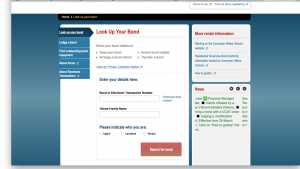More than 70% of businesses say helping their employees when they move abroad is crucial. And 90% want to grow the number of workers they send overseas in the next few years. But only 47% of them actually have a clear game plan, or mobility policy, for this.
This mismatch between wanting to go global and being ready for it is a big reason why international relocations sometimes fail. It’s like wanting to play a full-fledged football (or footie) game but only having half the team ready.
In our 15+ years helping corporates move to Australia, we’ve seen firsthand the challenges that arise when businesses leap without looking. Below are the top challenges we identified and how you can solve them.
We hope that these insights and strategies will help you as you create a concrete mobility policy.
What challenges have people migrating to Australia faced?
Challenge 1: Ageing parents

One of many employees’ biggest worries is about their ageing parents back home. If an elderly parent gets sick or needs help, it’s not easy for the employee to return home quickly. In some cultures, this comes with a lot of guilt because they feel it’s their job to care for their older parents.
To make this easier, you can:
- Give employees free or discounted tickets to go back “home” each year.
- Allow flexible work hours or let employees work from home sometimes. This way, they can make longer trips back home when needed.
- Have counselling or support groups for employees feeling stressed about being away from their ageing family.
Challenge 2: Child’s medical issues or a disability

When an employee has a child with medical problems or a disability, the challenges of moving internationally multiply. Firstly, every country has its healthcare system. For newcomers, finding the proper care, understanding the system, and accessing special treatments or therapists can be overwhelming.
Secondly, when parents are in a new environment, they worry more about their child’s well-being, especially if the child needs regular care or special facilities.
Lastly, settling in can take even longer. Parents must ensure their child gets the right care, which can add to the time it takes to feel at home.
Here’s how companies can help:
- Provide extra health care benefits that cover specialised treatments or therapies the child might need.
- Offer information and resources about local healthcare services, specialists, and support groups. Having a go-to list can be a big relief for parents.
- Allow parents the flexibility to attend medical appointments or therapy sessions without impacting their work.
- Organise counselling or support groups where parents can share their concerns and learn from others in similar situations.
Challenge 3: Partner’s workability

As we’ve always said, moving for work often means uprooting an entire family. And a key challenge many face is the workability of their partner in the new country. The partner might not easily find a job in their profession. They might face hurdles like different qualifications, unfamiliar work culture, or language barriers.
Also, some visas don’t let partners work. And even if they do, getting the right paperwork can be a long, complex task. If the partner can’t work, it can strain the family’s budget, especially if they’re used to having two incomes.
Finally, a job is more than just a paycheck. It’s also about feeling useful and making friends. Without work, partners can feel lost or lonely.
To support employees facing this challenge, you can:
- Offer assistance or resources to help partners with the visa and work permit process.
- Provide career counselling or job placement services to help partners find suitable employment.
- If the partner wants to study or train in something new, help pay for it.
- Organise events or introduce partners to local networks to help them build connections in the new country.
- Offer financial planning or counselling to help families adjust to potential changes in their financial situation.
Challenge 4: Finding the right school for children

Ensuring their children’s education is not disrupted is a top priority for employees relocating internationally. But finding the right school in a new country can be challenging. In Australia, especially where there are different school streams and structures, choosing the right school can be overwhelming.
Then there’s the fact that every country has its own curriculum, teaching methods, and school calendar. These differences can confuse parents trying to find a match that aligns with their child’s previous schooling experience.
If coming from a non-English speaking country, the different language of instruction in Australian schools can be a huge transition for children.
The availability of schools and family values can also be a challenge. The best schools often have long waitlists. Additionally, parents want a school that provides quality education and aligns with their family values and beliefs. Getting a spot in these schools can be competitive and time-consuming.
How to offer schooling support:
- Provide expert consultants who can guide parents through the schooling options, matching family needs and values to the right institutions. Having a consultant can also help with waitlists, ensuring a smooth pathway until the child can attend their school of choice. This might include finding interim educational setups or bridging programs.
- If language is a barrier, offer additional language classes or resources for the child to ease their transition.
- Organise programs or workshops that help children adjust to the new cultural environment.
Challenge 5: Cultural barriers

Moving to a new country is a plunge into a whole new world of customs, traditions, and ways of life. Different cultures have different ways of communicating. What’s considered polite in one culture might be rude in another. Misunderstandings can quickly arise without knowledge of these nuances.
Then, every culture has its own set of unwritten rules when it comes to work. These norms can vary widely from how meetings are conducted to the dynamics between juniors and seniors. In Australia, the Tall Poppy Syndrome is evident everywhere.
Outside of work, understanding local customs and traditions is essential to build relationships and integrate into the community. But without an understanding of the local culture, employees might feel left out or struggle to relate to their peers, leading to feelings of isolation.
To address this challenge, you can:
- Offer comprehensive cultural training sessions to help employees communicate better, understand local customs and feel more confident in their interactions.
- Pair newcomers with local mentors who can guide them through the intricacies of the workplace and social norms.
- For someone from a non-English speaking country, offer language classes to help improve their English communication skills, ensuring they can express themselves clearly and understand others effectively.
- Host events that celebrate local traditions, festivals, and customs. This educates and helps employees feel more connected to the local community.
How a relocation consultant can help
The intricacies and challenges of such relocations can be a lot to manage. Here’s where the expertise of a relocation consultant can be invaluable to your organisation:
- They usually have a deep understanding of both the home and destination countries. This knowledge allows them to guide you through the relocation process’s cultural, legal, and logistical nuances.
- A consultant can provide personalised solutions, whether finding the best schooling for your employee’s child or assisting with complex visa requirements.
- A consultant can help streamline processes from visa application to settling in. This not only saves time but also ensures cost-effective solutions for your organisation.
- Moving employees internationally isn’t just about logistics. It’s also about ensuring they feel culturally integrated and emotionally settled. A consultant can provide resources and support to ensure a smoother cultural transition for your employees.
Personnel Relocations simplifies the process of corporate relocation to make it comfortable and hassle-free at an affordable price. With excellent care and the right guidance, Personnel Relocations can help your employees make the right start in Australia.
We understand that every relocation is different, and each one has different goals. To contribute to your employees’ settling in Australia, we have alliances with experts such as relocation mentors, life coaches, cross-culture trainers, baby equipment hire, business communication specialists, local and international furniture removals, interior designers, decluttering, unpacking and setting up trades services which can help with specific needs.
It is not unusual for Personnel Relocations to handle the full suite of relocation needs, all from just one call.







